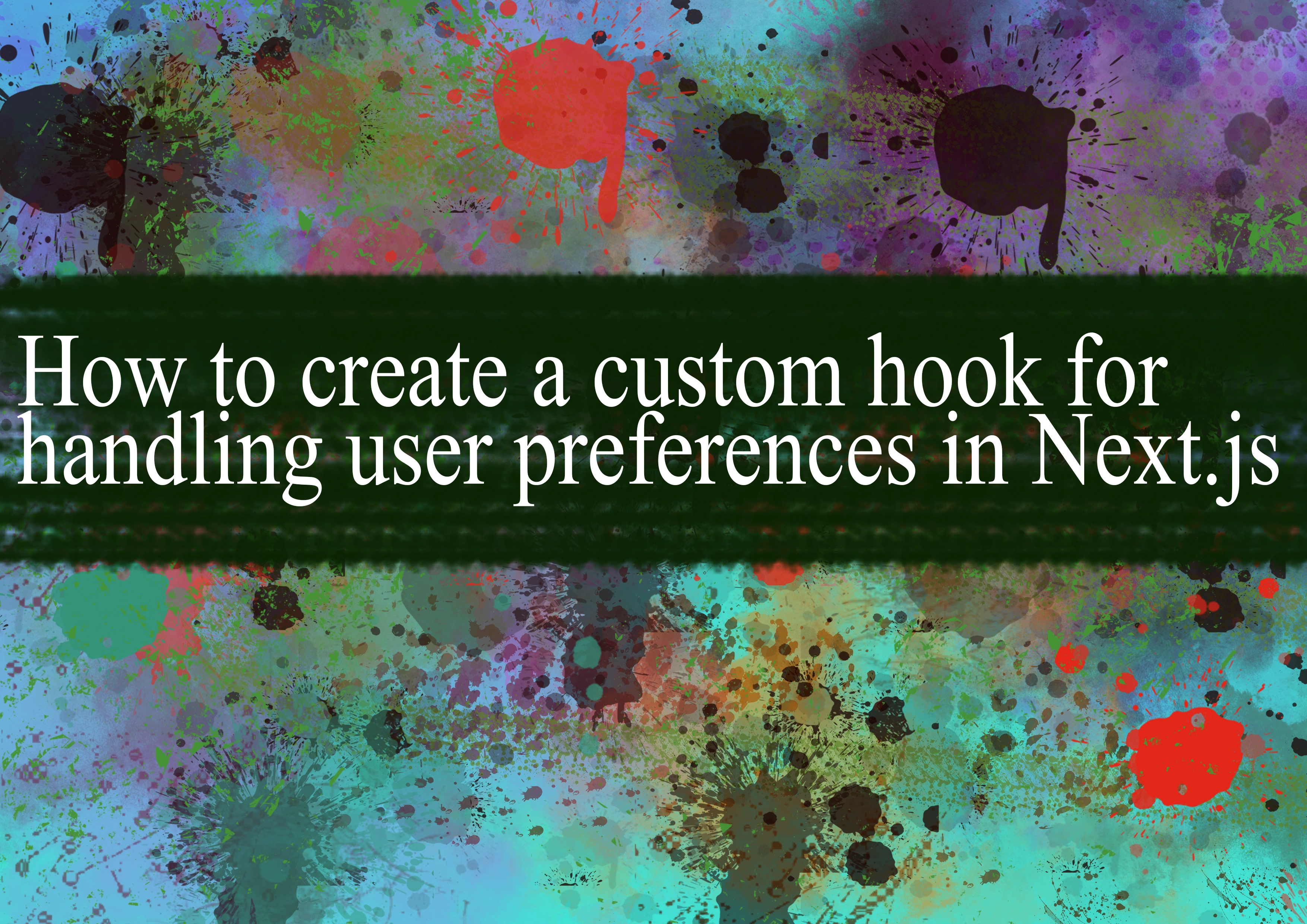How to create a custom hook for handling user preferences in Next.js

Creating a custom hook for handling user preferences in Next.js involves defining a hook that encapsulates the logic for managing and persisting user preferences. Here's a step-by-step guide on how you can create a custom hook for user preferences:
Create a new file for the custom hook: Start by creating a new file, for example,
useUserPreferences.js. This file will contain your custom hook logic.Import necessary dependencies: Import any dependencies you might need. In this example, we'll use
useStatefrom React anduseEffectfor managing side effects.javascriptimport { useState, useEffect } from 'react';Define the custom hook: Create the custom hook using the
useStatehook to manage the state of user preferences. UseuseEffectto handle any side effects, such as persisting the preferences to local storage.javascriptimport { useState, useEffect } from 'react'; const useUserPreferences = () => { // Define initial state values or retrieve them from local storage const [theme, setTheme] = useState('light'); const [fontSize, setFontSize] = useState('medium'); // Effect to persist preferences to local storage useEffect(() => { // Save preferences to local storage localStorage.setItem('theme', theme); localStorage.setItem('fontSize', fontSize); }, [theme, fontSize]); // Return state values and functions to update preferences return { theme, setTheme, fontSize, setFontSize, }; }; export default useUserPreferences;Use the custom hook in your components: Now you can use this custom hook in your components to manage user preferences.
javascriptimport React from 'react'; import useUserPreferences from '../path/to/useUserPreferences'; const PreferencesPage = () => { const { theme, setTheme, fontSize, setFontSize, } = useUserPreferences(); return ( <div> <h1>User Preferences</h1> <label> Theme: <select value={theme} onChange={(e) => setTheme(e.target.value)}> <option value="light">Light</option> <option value="dark">Dark</option> </select> </label> <br /> <label> Font Size: <select value={fontSize} onChange={(e) => setFontSize(e.target.value)}> <option value="small">Small</option> <option value="medium">Medium</option> <option value="large">Large</option> </select> </label> </div> ); }; export default PreferencesPage;
This example demonstrates a simple custom hook for managing user preferences. You can extend it based on your application's specific needs, such as adding more preferences or integrating with a state management library if necessary.
-
Popular Post
- How to optimize for Google's About This Result feature for local businesses
- How to implement multi-language support in an Express.js application
- How to handle and optimize for changes in mobile search behavior
- How to handle CORS in a Node.js application
- How to use Vue.js with a UI framework (e.g., Vuetify, Element UI)
- How to configure Laravel Telescope for monitoring and profiling API requests
- How to create a command-line tool using the Commander.js library in Node.js
- How to implement code splitting in a React.js application
- How to use the AWS SDK for Node.js to interact with various AWS services
- How to use the Node.js Stream API for efficient data processing
- How to implement a cookie parser middleware in Node.js
- How to implement WebSockets for real-time communication in React
-
Latest Post
- How to implement a dynamic form with dynamic field styling based on user input in Next.js
- How to create a custom hook for handling user interactions with the browser's device motion in Next.js
- How to create a custom hook for handling user interactions with the browser's battery status in Next.js
- How to implement a dynamic form with dynamic field visibility based on user input in Next.js
- How to implement a dynamic form with real-time collaboration features in Next.js
- How to create a custom hook for handling user interactions with the browser's media devices in Next.js
- How to use the useSWRInfinite hook for paginating data with a custom loading indicator in Next.js
- How to create a custom hook for handling user interactions with the browser's network status in Next.js
- How to create a custom hook for handling user interactions with the browser's location in Next.js
- How to implement a dynamic form with multi-language support in Next.js
- How to create a custom hook for handling user interactions with the browser's ambient light sensor in Next.js
- How to use the useHover hook for creating interactive image zoom effects in Next.js